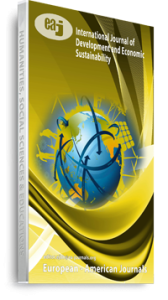By all standards, economic growth is expected to reduce poverty, rather poverty in Nigeria has remained high as 112m people representing 67 percent of the population are in abject poverty while GDP rates fell to 7.68 per cent in 2011 from 8.60 in 2010. Income inequality was 0.3594(2010) and -25.9 in 2011(BOS,2012). If Millennium Development Goals (MDG) could affect poverty level in India and China, why has Nigeria’s poverty level remained high? The study hence, examined the challenges of inequality and poverty reduction among Nigerian women and youth with focus on inclusive growth in post 2015 MDG. Content analysis of secondary literature was undertaken to address the problem of the study. Findings indicated that poverty in Nigeria is not affected due to misdirection of programmes from rural to urban areas, inadequate funding, lack of control, transparency and accountability and inadequate coverage of the poor. The study suggested that entrepreneurial training programmes and capability creation, combined with an all inclusive effort aimed at providing education and health facility, integrated growth, income distribution, and financing land ownership are highly required. Conclusively, poverty in Nigeria can be substantively reduced if an all inclusive approach is adopted covering entrepreneurial training backed with monitoring and accommodation of large coverage of the poor in the programme in post 2015 MDG plans.
Keywords: Entrepreneurship, Inclusive Growth, Inequality, Poverty

